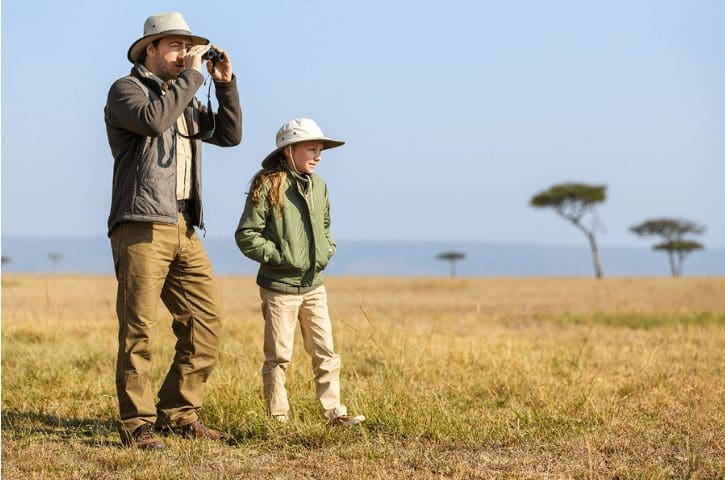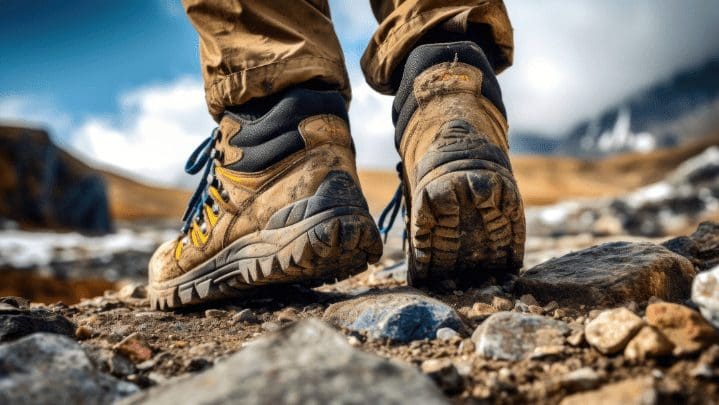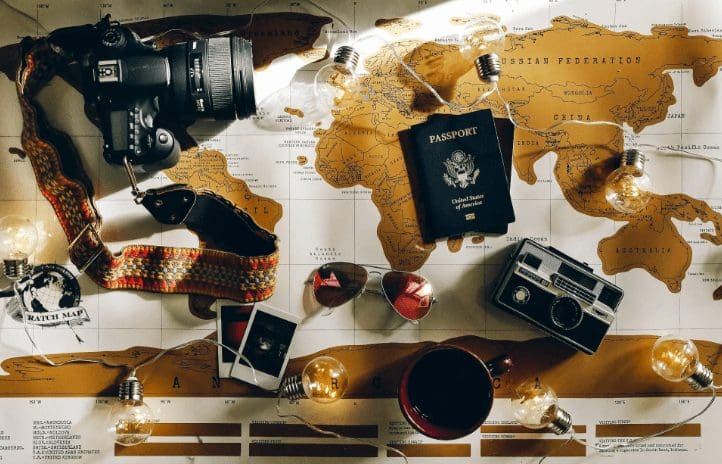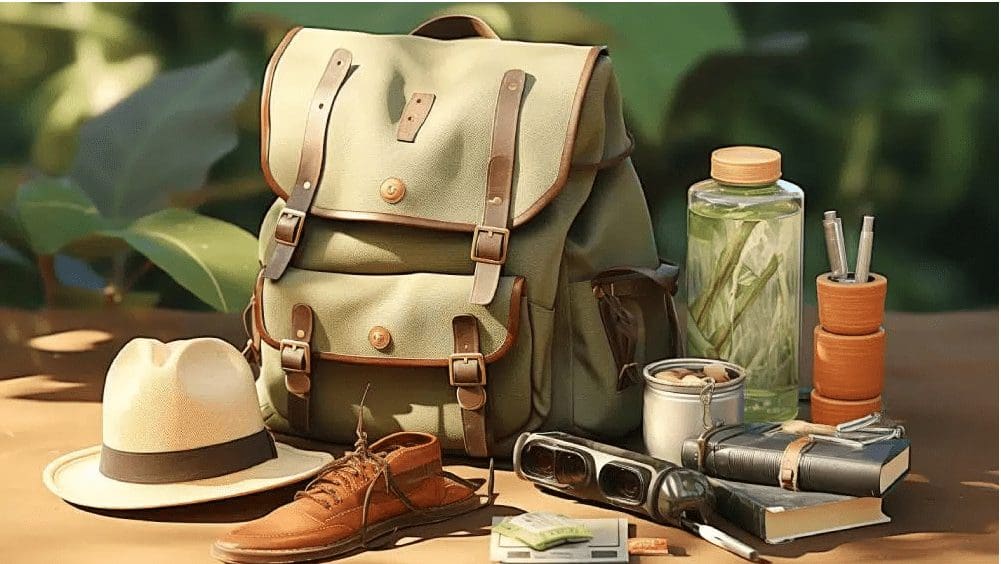Embarking on a safari in Kenya’s Masai Mara puts you at the heart of one of the world’s most spectacular wildlife reserves. Located in southwestern Kenya, the Masai Mara is renowned for its vast savannahs teeming with iconic animals like lions, elephants, and the annual Great Migration of wildebeest and zebras. Proper packing is crucial to enhance your comfort and safety during this adventure. By bringing the right essentials, you can maximize your safari experience, ensuring you’re fully prepared to witness the breathtaking landscapes and unique wildlife that await you. In this article, we’ll cover what to pack for a masai mara safari.
Essential Clothing

Packing the right clothing is crucial for your comfort and enjoyment on a Masai Mara safari. Here’s what you should consider bringing:
Neutral-Colored Attire
Choose clothing in neutral tones like khaki, beige, and olive green. These colors help you blend into the natural environment, making it easier to observe wildlife without disturbing them. Avoid bright colors and bold patterns, as they can attract unwanted attention from insects and may startle animals.
Lightweight, Breathable Fabrics
Opt for garments made from lightweight and breathable fabrics such as cotton or moisture-wicking materials. Quick-dry options are especially convenient in case you need to wash items during your trip or if you get caught in a sudden rain shower.
Long-Sleeved Shirts and Pants
Even though the days can be warm, wearing long-sleeved shirts and pants protects you from the sun’s harsh rays and minimizes insect bites. This extra coverage is essential for staying comfortable throughout your safari adventures.
Layering Pieces
Temperatures in the Masai Mara can fluctuate significantly between day and night. Pack a fleece jacket or sweater for the cool mornings and evenings. Layering your clothing allows you to adjust easily to changing weather conditions.
Rain Gear
Bring a lightweight, waterproof jacket or poncho. Sudden rainstorms can occur, and having proper rain gear ensures you stay dry and continue enjoying your safari without interruption.
Footwear
Choosing the right footwear is vital to ensure your comfort and safety while exploring the Masai Mara. Here’s what you should pack:
Sturdy Hiking Boots or Closed-Toe Shoes

Bring a pair of sturdy hiking boots or closed-toe shoes that are well-broken-in. These will provide the support and traction you need for walking safaris and navigating uneven terrain. Comfortable footwear is essential to prevent blisters and fatigue, allowing you to fully enjoy your wildlife excursions without any discomfort.
Casual Sandals or Flip-Flops
Pack a pair of casual sandals or flip-flops for your downtime at the lodge or camp. After a day of adventure, you’ll appreciate slipping into something more relaxed. They are perfect for lounging around, giving your feet a break from the enclosed shoes worn during the day.
Sun Protection
Safeguarding yourself from the sun is essential while on a Masai Mara safari, as the equatorial sun can be intense and unforgiving. Here’s what you need to pack to stay protected:
Wide-Brimmed Hat or Cap
Bring a wide-brimmed hat or cap to shield your face, neck, and ears from direct sunlight. This not only helps prevent sunburn but also keeps you cooler during the heat of the day. A hat with a strap can be beneficial to prevent it from blowing away in the safari vehicle or on windy days.
Sunglasses
Pack a pair of high-quality sunglasses with UV protection, preferably with polarized lenses. They will protect your eyes from harmful ultraviolet rays and reduce glare, enhancing your ability to spot wildlife and enjoy the stunning landscapes without discomfort.
High-SPF Sunscreen
Choose a high-SPF sunscreen (SPF 30 or higher) that offers broad-spectrum protection against both UVA and UVB rays. Opt for water-resistant formulas to ensure lasting coverage, especially if you’re sweating or encounter light rain. Remember to reapply regularly throughout the day.
Lip Balm with SPF
Don’t overlook lip protection. Bring a lip balm that includes SPF to prevent your lips from becoming dry, chapped, or sunburned. Applying it frequently will keep your lips moisturized and shielded from the sun’s rays.
Insect Protection
Safeguarding yourself from insects is essential while exploring the Masai Mara, as it not only ensures your comfort but also protects you from insect-borne diseases. Here’s what you should pack to keep those pesky bugs at bay:
Insect Repellent
Bring a high-quality insect repellent to ward off mosquitoes, tsetse flies, and other biting insects common in the region. Consider using a DEET-based repellent for maximum effectiveness. If you prefer natural alternatives, look for repellents containing ingredients like picaridin or oil of lemon eucalyptus. Apply the repellent to all exposed skin, especially during dawn and dusk when insects are most active.
Insect-Repellent Clothing
Enhance your protection by wearing insect-repellent clothing. You can purchase pre-treated shirts and pants that are designed to repel insects. These garments are infused with permethrin, a safe and effective insecticide for clothing. Alternatively, you can treat your own clothes with a permethrin spray before your trip. This added layer of defense significantly reduces the likelihood of bites, allowing you to enjoy your safari with peace of mind.
Travel Documents and Health Essentials
Preparing your travel documents and health essentials is crucial for a smooth and worry-free safari experience in the Masai Mara. Here’s what you need to ensure before embarking on your adventure:
Passport and Visas
Make sure your passport is valid for at least six months beyond your planned departure date from Kenya. Check if you require a visa to enter Kenya based on your nationality. You can obtain a visa online through the eVisa portal or upon arrival at the airport, but it’s advisable to secure it in advance to avoid any delays. Keep copies of your passport and visa stored separately from the originals in case of loss or theft.
Vaccination Certificates
Certain vaccinations are recommended or required when traveling to Kenya. A Yellow Fever vaccination certificate is mandatory if you’re arriving from a country with risk of Yellow Fever transmission. Due to health regulations, you may be asked to present this certificate upon entry. Additionally, ensure you’re up to date with routine vaccinations like measles, mumps, rubella (MMR), and consider others such as hepatitis A and typhoid. Check the latest COVID-19 vaccination and testing requirements, as these can change frequently. Consult your healthcare provider or a travel clinic several weeks before your trip for personalized advice.
Travel Insurance Documents
Invest in comprehensive travel insurance that covers medical emergencies, trip cancellations, lost luggage, and evacuation services. Carry a copy of your insurance policy, including coverage details and emergency contact numbers. This ensures you’re prepared for any unforeseen circumstances and can access assistance promptly if needed.
Personal Medications
Bring a sufficient supply of any personal medications you take regularly, as they may not be readily available in Kenya. Keep medications in their original labeled containers, and carry copies of your prescriptions. This can help with refills if necessary and ease the process with customs officials if questioned.
Basic First Aid Kit
Pack a basic first aid kit to handle minor ailments during your safari. Include essentials such as band-aids, antiseptic wipes, pain relievers (like acetaminophen or ibuprofen), antihistamines for allergic reactions, and any other over-the-counter medications you might need. Having these items on hand allows you to address small issues quickly without interrupting your adventure.
Electronics and Gadgets

Equipping yourself with the right electronics and gadgets can significantly enhance your Masai Mara safari experience. From capturing stunning wildlife photos to staying powered up during long days in the field, here’s what you should consider packing:
Camera Equipment
Documenting your safari through photographs will allow you to relive your adventure and share it with others.
- DSLR or Mirrorless Cameras: Bring a high-quality DSLR or mirrorless camera to capture the vibrant wildlife and landscapes. These cameras offer versatility and superior image quality compared to point-and-shoot cameras or smartphones.
- Telephoto and Wide-Angle Lenses: A telephoto lens (such as a 200mm or higher) is essential for photographing animals from a distance without disturbing them. A wide-angle lens is also useful for capturing the vast savannahs and dramatic skies of the Masai Mara.
- Extra Batteries and Memory Cards: Safari days can be long, and charging opportunities may be limited. Pack extra batteries to ensure your camera doesn’t run out of power during critical moments. Additional memory cards will allow you to take as many photos as you like without worrying about storage space.
Binoculars
Enhance your wildlife viewing experience with a good pair of binoculars.
- For Enhanced Wildlife Viewing: Binoculars enable you to observe animals that are farther away with clarity and detail. Look for binoculars with a magnification of at least 8x to 10x and a lens diameter of 32mm to 42mm for optimal performance in varying light conditions.
Chargers and Adapters
Keep all your devices powered throughout your trip.
- Compatibility with Kenyan Sockets (Type G): Kenya uses Type G electrical outlets, the same as the UK, which have three rectangular prongs. Bring the appropriate travel adapters to charge your devices. If you have multiple gadgets, consider a universal adapter with multiple USB ports for convenience.
- Device Chargers: Don’t forget the specific chargers for all your electronics, including cameras, smartphones, tablets, and any other devices you plan to bring.
Portable Power Bank
Stay connected even when you’re away from power sources.
- For Charging Devices During Outings: A high-capacity portable power bank is invaluable for charging your phone, camera, or other small devices while on the go. This ensures you won’t miss capturing any special moments due to a dead battery and can stay in communication if needed.
Miscellaneous Items
Packing a few extra items can greatly enhance your comfort and convenience during your Masai Mara safari. Here’s a list of miscellaneous essentials you shouldn’t overlook:
Daypack or Backpack
- Carrying Daily Essentials: Bring a comfortable and sturdy daypack or backpack to carry your daily necessities during game drives and excursions. This can include items like your camera, binoculars, sunscreen, insect repellent, snacks, and a water bottle. Opt for a bag with multiple compartments to keep your items organized and easily accessible.
Reusable Water Bottle
- Staying Hydrated Sustainably: Staying hydrated is crucial under the African sun. Pack a reusable water bottle to refill throughout the day. This not only ensures you have water readily available but also reduces plastic waste, supporting sustainable tourism practices in the Masai Mara.
Flashlight or Headlamp
- Navigating Campsites After Dark: A flashlight or headlamp is essential for navigating around your lodge or campsite after sunset, as lighting can be limited. A headlamp keeps your hands free, which is particularly useful if you’re carrying other items or need to read maps or guides. Don’t forget to pack extra batteries.
Field Guides or Apps
- Identifying Wildlife and Birds: Enhance your safari experience by bringing field guides or downloading apps that help you identify the diverse wildlife and bird species you will encounter. Having this information at your fingertips enriches your understanding and appreciation of the Masai Mara’s ecosystem.
Snacks and Energy Bars
- Personal Favorites for Between Meals: While meals are typically provided during safaris, packing some of your favorite snacks or energy bars can be handy for those times when you get hungry between scheduled meal times. They also provide a quick energy boost during long days of exploration.
Ziplock Bags
- Protecting Gear from Dust and Moisture: The Masai Mara can be dusty, and occasional rains are possible. Bring a supply of ziplock bags in various sizes to protect your electronics, documents, and other sensitive items from dust and moisture. They are also useful for organizing small items within your luggage or daypack.
Conclusion: Ready for the Journey of a Lifetime
As you finalize your packing, double-check that you’ve included all the essentials to ensure a comfortable and unforgettable safari. Balance comfort with practicality by bringing items that are necessary without overpacking. Being well-prepared allows you to fully embrace the adventure that the Masai Mara offers, from incredible wildlife sightings to breathtaking landscapes. Remember to uphold environmental responsibility by following “leave no trace” principles and supporting local conservation efforts. By doing so, you contribute to preserving this magnificent ecosystem for future generations to enjoy.

